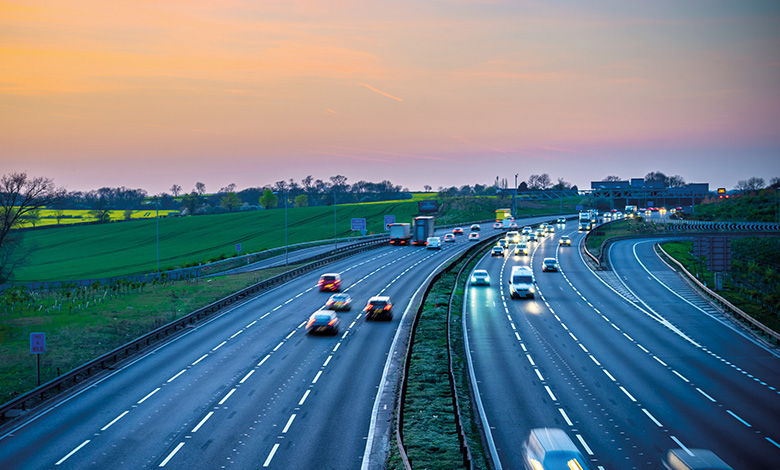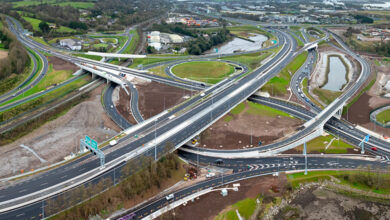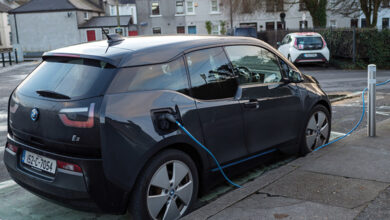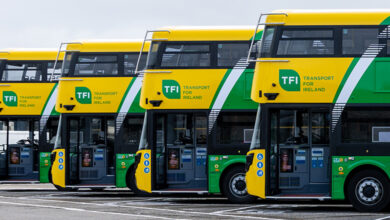‘Decreasing congestion’ key to reducing transport emissions

The demand management strategy focuses on transport-oriented development to achieve national climate objectives.
Moving Together: A Strategic Approach to the Improved Efficiency of the Transport System in Ireland aims to alleviate the economic and social costs of congestion and car-dependency in tandem with investment and scale-up in public transport, active travel, and EV infrastructure. With the number of licensed vehicles having increased by 215 per cent from 915,000 in 1985 to 2.9 million in 2021, the strategy unsurprisingly highlights the car as the most dominant form of inland transport in Ireland.
Recognising that the car will remain the dominant mode of transport for many people, the Strategy states that the Government is mindful of the needs of people for whom the car is the only viable transport choice, namely “captive car-users”.
Focusing on the impetus arising from commitments in Climate Action Plan 2023, which sets a target of achieving a reduction in 20 per cent in total vehicle kilometres and a reduction in fuel usage of 50 per cent by 2030, Moving Together intends to improve journey times for car drivers, public transport users, business, and freight, thus leading to “improvements in local air quality and reduced stress with associated health benefits for drivers and non-drivers alike”.
Furthermore, the Strategy aims to form a key part of the Government’s decarbonisation pathway for the transport sector and states that it “aims to go hand-in-hand with government investment and supports already in place or planned for public transport, walking, cycling, and electric vehicles”.
Whilst the strategy does not contain a prospective series of actions, there is acknowledgment that it instead “provides a firm policy direction and suite of options – such as road space reallocation, progressive taxation, freight efficiency, or behavioural incentives”.
In respect of this, the recommendations intend to provide guidance needed for local authorities and local council representatives to develop plans for their own areas.
On a broader context, the strategy states that it aims to provide an overarching framework for the development and delivery of potential demand management.
The strategy outlines: “In the Greater Dublin Area, congestion was estimated to cost the economy €336 million in 2022, rising to about €1.5 billion by 2040. Nationally, congestion is projected to cost €2 billion by 2040. There are also many significant environmental, health and social costs, including poor air quality and the negative impacts of stress, inactivity, or time away from family or community.”
However, the strategy also states that the benefits of current and future government investment and supports in public transport, walking, cycling and electric vehicles “cannot be fully realised while current levels of congestion remain”.
According to a recent OECD report, Ireland’s transport system is “car dependent by design” and requires systemic transformation to reverse a car-centric model which has dominated planning and settlement patterns for decades. The recent National Household Travel Survey 2022 (NHTS) reported that almost seven in 10 (69 per cent) journeys in Ireland are made by car, with trips below 3km accounting for over a third (35 per cent) of all journeys nationally.
Reducing travel demand
Aiming to be high level in nature, the strategy sets out 35 specific recommendations to reduce travel demand across society and the economy.
The recommendations are spread across the following themes and include:
• strengthening implementation of demand management across the national planning system;
• embedding the polluter pays principle in taxation policy over the medium to long-term;
• empowering and supporting local authorities to develop local-based transport plans;
• driving efficiency in the freight sector;
• strengthening supply side measures in public transport and active travel to complement demand management;
• providing enabling legislation to support appropriate measures to be taken;
• embedding demand management principles and practices across the public sector, making it a leading institution for change.
• engaging with education and sports sectors to embed demand management principles and practices;
• engaging with the business sector to embed demand management principles and practices;
• building the evidence base to inform policy choices and demonstrate success.
Minister for Transport Eamon Ryan TD says: “This strategy is a critical piece in the decarbonising jigsaw for transport, but its benefits are much wider than climate. It is about re-imagining and re-allocating our use of space, and about putting people, rather than cars, at the centre of our urban and transport planning, ensuring better and more liveable towns and cities. This does not mean that cars will not continue to be a vital part of our transport mix – for many people, particularly in rural or isolated areas, they will continue to be critical. However, what this strategy is about is finding innovative approaches to making travel, by whatever means, more efficient and pleasant for everybody.”
The Irish Planning Institute President Gavin Lawlor says: “Transport-oriented development is key to us achieving our national climate objectives, however delivering on this ambition requires the acceleration of overdue planning guidelines and the delayed revision of the National Planning Framework, with more analysis of the reasons why urban sites are not being brought forward for development.
“All of this means that we need more coherence across local authorities, including parking standards for new developments, and delivering alternatives to car dependent housing.”





